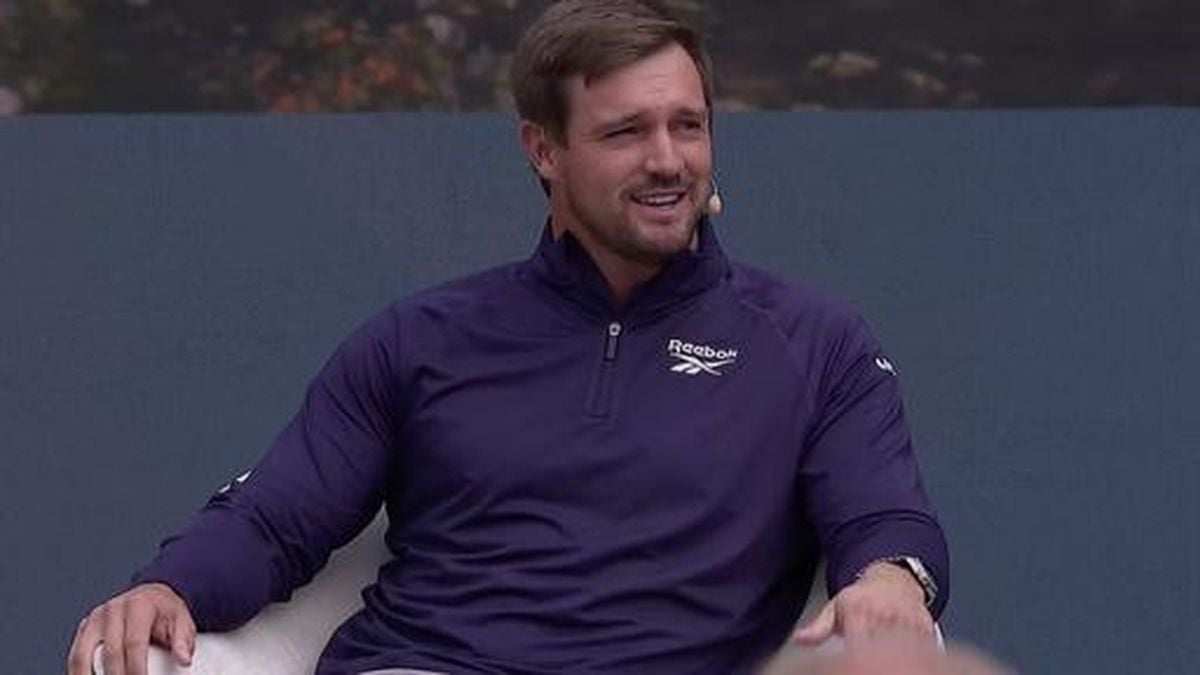Key Points
Bryson DeChambeau has won nine Tour events, including two U.S. Open titles, and is known for his scientific and analytical approach to golf.
Since joining LIV Golf in 2022, DeChambeau has won multiple LIV titles and led Crushers GC to several team victories during the 2024 season.
DeChambeau began using Sportsbox AI’s video-based technology in 2024 to analyze his swing, contributing to improved performance and consistent top finishes.
Bryson DeChambeau has always been a golfer who marches to the beat of his own drum. Whether you call him “The Professor,” “The Mad Scientist,” or just Bryson, his relentless curiosity and analytical approach have shaped not only his game but the very future of golf technology. Now, with a resume boasting nine Tour victories, two U.S. Open titles, and a reputation as one of the sport’s most innovative minds, DeChambeau is making headlines once again—this time at the intersection of golf and artificial intelligence.
On August 26, 2018, DeChambeau hoisted the trophy at the Northern Trust in Paramus, N.J., a moment that signaled the arrival of a new kind of champion—one who would challenge the traditions of the game with science and data. Fast forward to 2025, and Bryson’s journey is marked by a series of bold experiments and boundary-pushing decisions, from his much-debated move to LIV Golf in 2022 to his pioneering use of AI-driven analytics.
But where did this all begin? According to DeChambeau, his penchant for questioning everything started early. “Funny enough, as a kid, I was very inquisitive. I always ask questions. My parents hated me for it. They were like, ‘Why are you asking so many questions, Bryson? Stop doing that. It is what it is.’ And I was like, ‘No, but why? I don’t get it. I want to understand.’ I’ve always been inquisitive my entire life,” DeChambeau shared in a conversation with Salesforce. That childhood curiosity, once a source of frustration for his parents, has become the rocket fuel for his unique approach to golf.
DeChambeau’s scientific outlook took shape at 15, when he picked up a copy of The Golf Machine, a physics-heavy textbook that transformed his understanding of the golf swing. “And I was throwing a book called The Golf Machine when I was 15. It’s a physics textbook. And I started understanding the golf swing a little bit more. And I started researching a little bit more into the analytics. I applied all my school education to golf,” he explained. That early foundation in physics and analytics would pay major dividends, most notably at the 2020 U.S. Open, where DeChambeau famously overpowered the course with a strategy that prioritized distance above all else. “I plan to hit driver as much as I possibly can. It’s a tremendous advantage when you’re that far up, and you can hit a pitching wedge out of it. When you’ve got a 5-iron or 6-iron, it’s nearly impossible. You’ll be pitching it back into the fairway,” he said of his bold plan at Winged Foot.
But DeChambeau hasn’t stopped innovating. In 2024, he began working with Sportsbox AI, employing video-based artificial intelligence to analyze his shots in minute detail. This partnership marked a turning point. “It’s literally a game-changer,” DeChambeau declared. The AI system can spot even the smallest deviations from the ideal swing, helping him fine-tune his performance. Since adopting this technology, DeChambeau has finished in the top 10 at major championships six times and captured his second U.S. Open title in 2024.
His analytical approach has not only set him apart but also delivered results. After joining LIV Golf in 2022, DeChambeau wasted no time making an impact. He clinched his first LIV title at The Greenbrier in August 2023, then added another victory at LIV Golf Chicago later that year. As captain of Crushers GC, he led his team to triumphs in Jeddah, Hong Kong, and Chicago during the 2024 season. Even when defending his U.S. Open title in 2025 didn’t go as planned—he missed the cut—DeChambeau rebounded with a T5 finish at the Masters and a runner-up performance at the PGA Championship, proving his consistency on golf’s biggest stages.
What’s truly remarkable is how DeChambeau’s performance has improved since joining LIV. According to a May 2025 analysis by Ron Klos on X, DeChambeau’s strokes-gained average jumped from 1.41 to 2.11, making him one of just four LIV golfers to show improvement in that metric. For context, other big names like Jon Rahm, Dustin Johnson, Brooks Koepka, and Patrick Reed saw their averages decline. Tyrrell Hatton was the only other notable gainer, increasing from 1.08 to 1.34.
DeChambeau’s embrace of technology is now reaching new heights. At the Salesforce DreamForce conference on October 17, 2025, he revealed a partnership with Google to develop a coaching tool using the Gemini AI system. The goal? To provide instant, personalized feedback to golfers at every level—no expensive coaches required. “From a teaching perspective, giving people the opportunity to get a lot better at the game of golf a lot faster is what I’m focused on and excited about for the future of AI and what it can do for each and every individual,” DeChambeau said during the event.
The potential for AI in coaching is staggering. “AI can provide better insights than any professional coach out there. For a human to process twenty five hundred metrics in less than thirty seconds is impossible. But AI can do that and tell you exactly what you need to know at that exact moment because day to day it could change,” DeChambeau explained. He added, “It can teach people how to get better from a beginner all the way to a professional. It can teach me how to get better from a golf swing perspective. It can give me a better club fit if my equipment is not right. And from that knowledge, me needing to know over twenty five hundred metrics in less than thirty seconds, it can dive down and say, ‘here’s the five greatest deviators in your golf swing of why you’re not hitting it that great’. In less than thirty seconds it can tell you what was wrong.”
Initially, this cutting-edge technology will be available on smartphones, but DeChambeau and Google plan to expand it to augmented reality devices like goggles and glasses, offering real-time feedback from the golfer’s own perspective. “This is just the beginning. We’re literally at escape velocity with AI. We’re so close to having AI revolutionise, it’s already transformed our world, but really transform our world to a place that we don’t really see or know from ten or fifteen years ago,” DeChambeau said, hinting at a future where technology and golf are inseparable.
For DeChambeau, what began as a childhood habit of asking “why” has become the driving force behind a career defined by innovation, risk-taking, and results. As he continues to push the boundaries with science, data, and now artificial intelligence, one thing is clear: Bryson DeChambeau isn’t just changing his own game—he’s helping to shape the future of golf itself.
With his eyes set firmly on the next frontier, DeChambeau’s journey is far from over. Golf fans and tech enthusiasts alike will be watching closely as he and his partners at Google and Sportsbox AI usher in a new era of data-driven performance and accessible coaching. The revolution, it seems, has only just begun.







